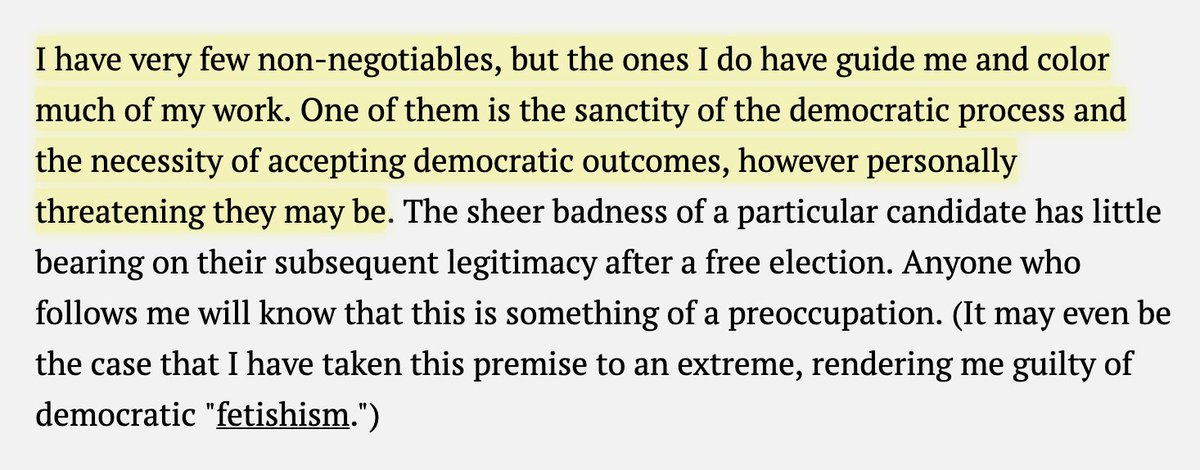
For those asking, I underestimated Trump and I overestimated Republicans, although I'm glad to see that they've finally come around. If anyone is interested in engaging in good faith, this is what I wrote in November and this is still what I believe now:
wisdomofcrowds.live/crisis-of-perm…
wisdomofcrowds.live/crisis-of-perm…
The Republican Party violated one of my only non-negotiables: the sanctity of democratic outcomes. And I won't forget that. But I also won't waver on this fundamental commitment. I believe, if anything, that it's more important than ever
wisdomofcrowds.live/crisis-of-perm…
wisdomofcrowds.live/crisis-of-perm…

It's telling that some of my critics, such as @jbouie, have used today's tragic events to attack me in bad faith and smugly say "I told you so." It says something about their priorities. They're also wrong. This was not a coup by any accepted definition of the word
These people wouldn't know a coup if it hit them in the head. I've lived in countries where coups actually happened and where hundreds were massacred by security forces as a result. I've studied coups, in part because I saw the damage they did to the country of my parents
Fortunately, there's a whole political science literature on coups.
"Under the standard definition in political science, a coup attempt involves an illegal, overt effort by civilian or military elites to remove a sitting executive from power"
washingtonpost.com/outlook/2020/1…
"Under the standard definition in political science, a coup attempt involves an illegal, overt effort by civilian or military elites to remove a sitting executive from power"
washingtonpost.com/outlook/2020/1…
It does a disservice to anyone in the Middle East (or in Latin America) to pretend that what America is going through now is comparable to what they've suffered under. And it demonstrates that classic American desire to make everything American-centric
Middle East correspondents @RichardJSpencer and @kshaheen have good threads on the "coup" question. I agree with them. It's insulting to say that this is a coup.
https://mobile.twitter.com/RichardJSpencer/status/1346957611120422913
Today and in the weeks prior, US democracy faced one of its most serious tests in modern times. I'm not going to apologize for believing that our system is resilient. It is. Our institutions are flawed and sometimes hollow, but they prove themselves when they come under threat
• • •
Missing some Tweet in this thread? You can try to
force a refresh




